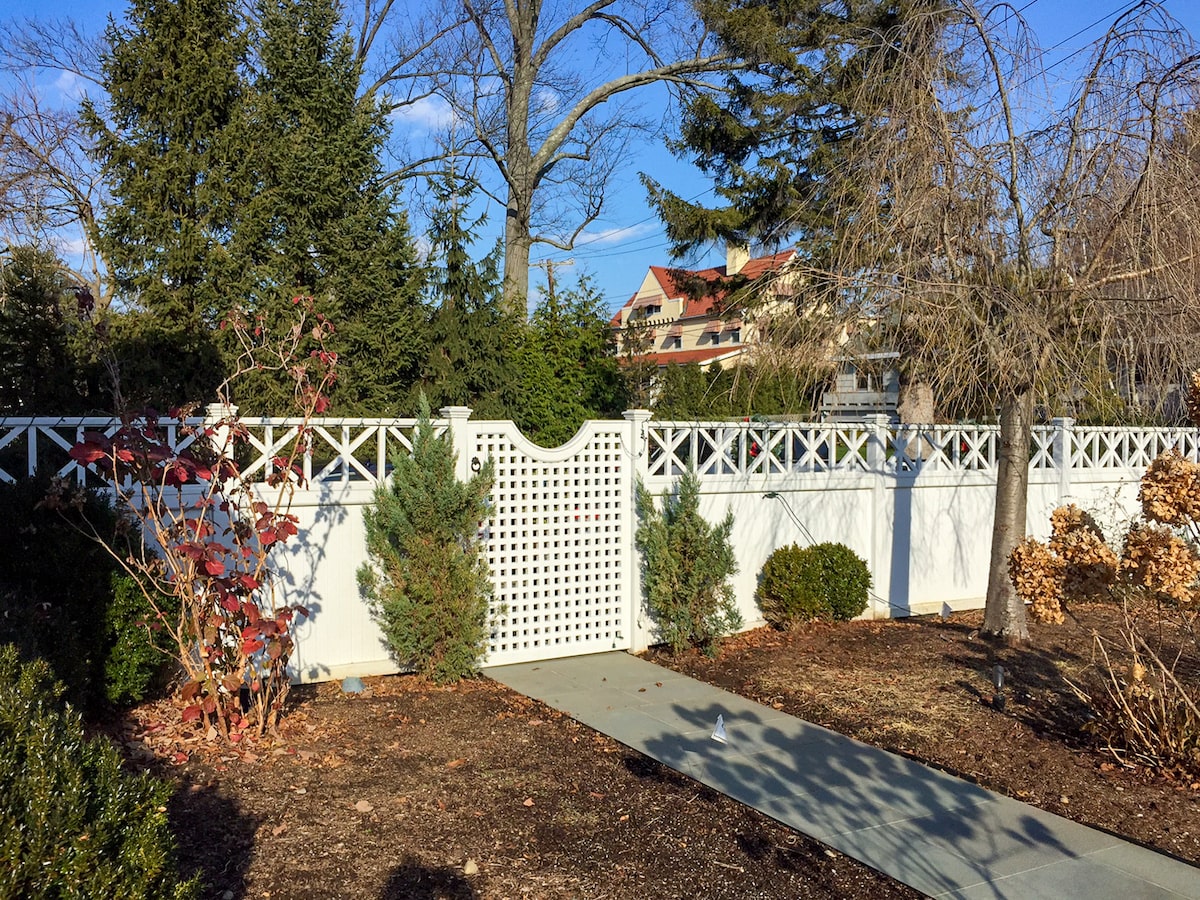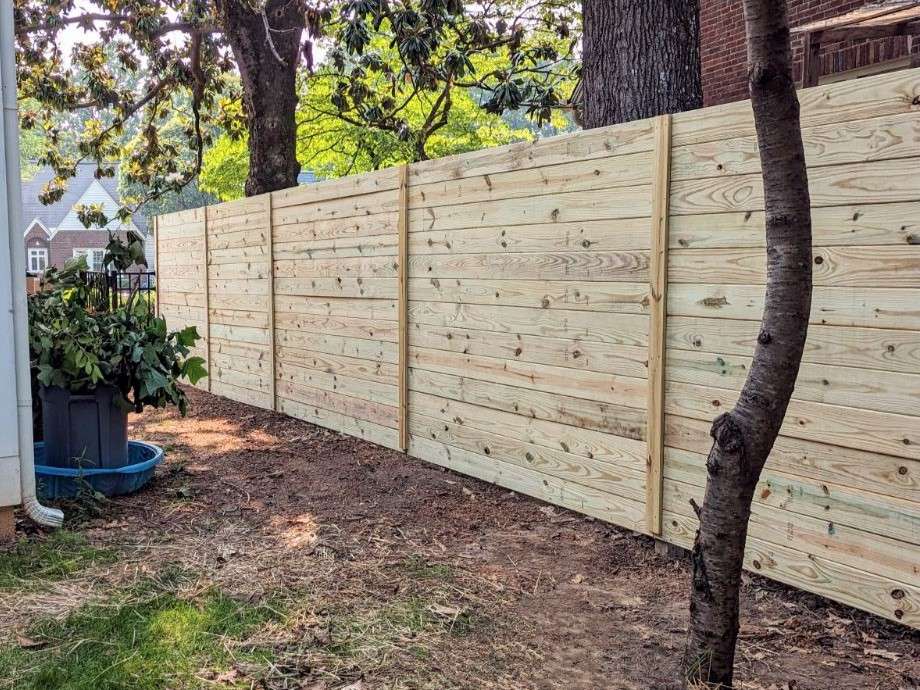All Categories
Featured
If you're taking into consideration mounting a fence around your residential property, recognizing the authorization requirements in your location is vital. In this overview, we'll damage down the different licenses you might need to install a fence and how to ensure your project remains certified with neighborhood legislations.
Why Are Allows Essential for Fencing Setup? Licenses are needed to make sure that the fence you develop abide by regional building regulations, zoning regulations, and safety standards. These authorizations are in area to safeguard your building, the homes around you, and the setting. They make certain that the fence will not block energies, web traffic circulation, or produce hazards for pedestrians. Furthermore, they assist preserve the aesthetic and structural honesty of your community.
![]()
Sorts Of Permits You May Need. Building Permit. A structure license is the most usual demand for setting up a fence. This license makes sure that the structure you construct complies with local security codes and guidelines. You might require to obtain a structure permit if your fencing goes beyond a certain height (normally around 6 feet) The regional authorities will normally evaluate your strategies to ensure that your fencing is structurally sound and risk-free.
Zoning License. A zoning permit ensures that your fence complies with these guidelines. Your fence could require to be established back a specific range from sidewalks or home lines.
Homeowners Organization (HOA) Authorization. If your building is component of a property owners organization, you may need authorization prior to installing a fence. HOAs frequently have stringent rules pertaining to the kind, design, and materials utilized for fencings to maintain a consistent look throughout the community.
Specialized Permits. In some cases, you may require specialty permits based upon the location of your home or the nature of your fencing. If your residential property is in a flood zone, you may require added permits to ensure that your fencing does not block water drainage or water circulation. Likewise, if you intend to develop a fencing near an eco secured area, you may need an unique authorization to abide by environmental regulations.
![]()
Utility Easements and Utility Business Authorizations. Some residential properties have utility easements, which are locations assigned for energy pipes, cables, or lines. Prior to mounting a fencing, you should check if your home has an easement. Developing a fencing within an easement could hinder energy maintenance or damage underground lines. You may require approval from the energy business or neighborhood authorities prior to continuing with the setup.
Exactly How to Determine Which Permits You Need. Get In Touch With Local Authorities. The initial step in identifying the licenses called for is to contact your local structure department or zoning office. They can provide specific information regarding what permits are necessary for your area. Several cities have on-line sources or sites where you can check the needs and even request a license online.
Get In Touch With a Specialist Fence Service Provider. A neighborhood fencing contractor is often knowledgeable about the permit procedure and neighborhood policies. They can help you browse the demands and make certain that your task is certified. Many service providers additionally deal with the permit application procedure on your part, conserving you effort and time.
Evaluation Your Community's HOA Guidelines. Make sure to evaluate their standards prior to applying for any type of licenses if you live in a neighborhood governed by an HOA. The HOA might call for specific layouts, products, or height restrictions for fencings within the community. Submit your strategies to them for authorization prior to continuing.
![]()
Repercussions of Not Getting an Authorization. Installing a fencing without the required permits can lead to major consequences. You might encounter penalties, be bought to remove the fencing, or be needed to redo the installment to fulfill code requirements. In addition, marketing your home could be made complex if the fence does not meet regional laws. Prospective buyers may think twice to acquire a home with an unpermitted fence, specifically if it's in violation of zoning regulations.
Final thought. Before mounting a fencing on your building, see to it you comprehend the neighborhood regulations and acquire any kind of essential authorizations. Structure authorizations, zoning authorizations, HOA authorizations, and specialty allows all play a vital role in ensuring that your fence is secure, legal, and certified. Putting in the time to study and safeguard the ideal permits will conserve you from costly errors and possible legal issues in the future. Whether you're intending a privacy fencing or a decorative boundary, complying with these steps will certainly aid make the setup process smooth and hassle-free.
Why Are Allows Essential for Fencing Setup? Licenses are needed to make sure that the fence you develop abide by regional building regulations, zoning regulations, and safety standards. These authorizations are in area to safeguard your building, the homes around you, and the setting. They make certain that the fence will not block energies, web traffic circulation, or produce hazards for pedestrians. Furthermore, they assist preserve the aesthetic and structural honesty of your community.

Sorts Of Permits You May Need. Building Permit. A structure license is the most usual demand for setting up a fence. This license makes sure that the structure you construct complies with local security codes and guidelines. You might require to obtain a structure permit if your fencing goes beyond a certain height (normally around 6 feet) The regional authorities will normally evaluate your strategies to ensure that your fencing is structurally sound and risk-free.
Zoning License. A zoning permit ensures that your fence complies with these guidelines. Your fence could require to be established back a specific range from sidewalks or home lines.
Homeowners Organization (HOA) Authorization. If your building is component of a property owners organization, you may need authorization prior to installing a fence. HOAs frequently have stringent rules pertaining to the kind, design, and materials utilized for fencings to maintain a consistent look throughout the community.
Specialized Permits. In some cases, you may require specialty permits based upon the location of your home or the nature of your fencing. If your residential property is in a flood zone, you may require added permits to ensure that your fencing does not block water drainage or water circulation. Likewise, if you intend to develop a fencing near an eco secured area, you may need an unique authorization to abide by environmental regulations.

Utility Easements and Utility Business Authorizations. Some residential properties have utility easements, which are locations assigned for energy pipes, cables, or lines. Prior to mounting a fencing, you should check if your home has an easement. Developing a fencing within an easement could hinder energy maintenance or damage underground lines. You may require approval from the energy business or neighborhood authorities prior to continuing with the setup.
Exactly How to Determine Which Permits You Need. Get In Touch With Local Authorities. The initial step in identifying the licenses called for is to contact your local structure department or zoning office. They can provide specific information regarding what permits are necessary for your area. Several cities have on-line sources or sites where you can check the needs and even request a license online.
Get In Touch With a Specialist Fence Service Provider. A neighborhood fencing contractor is often knowledgeable about the permit procedure and neighborhood policies. They can help you browse the demands and make certain that your task is certified. Many service providers additionally deal with the permit application procedure on your part, conserving you effort and time.
Evaluation Your Community's HOA Guidelines. Make sure to evaluate their standards prior to applying for any type of licenses if you live in a neighborhood governed by an HOA. The HOA might call for specific layouts, products, or height restrictions for fencings within the community. Submit your strategies to them for authorization prior to continuing.

Repercussions of Not Getting an Authorization. Installing a fencing without the required permits can lead to major consequences. You might encounter penalties, be bought to remove the fencing, or be needed to redo the installment to fulfill code requirements. In addition, marketing your home could be made complex if the fence does not meet regional laws. Prospective buyers may think twice to acquire a home with an unpermitted fence, specifically if it's in violation of zoning regulations.
Final thought. Before mounting a fencing on your building, see to it you comprehend the neighborhood regulations and acquire any kind of essential authorizations. Structure authorizations, zoning authorizations, HOA authorizations, and specialty allows all play a vital role in ensuring that your fence is secure, legal, and certified. Putting in the time to study and safeguard the ideal permits will conserve you from costly errors and possible legal issues in the future. Whether you're intending a privacy fencing or a decorative boundary, complying with these steps will certainly aid make the setup process smooth and hassle-free.
Latest Posts
Laminate Floor Covering: Style Meets Toughness at Carpet Interiors Floor & Home
Published Apr 21, 25
2 min read
Comprehensive Protection for Your Peace of Mind
Published Apr 21, 25
1 min read
Meet the Professionals Behind Montclare Auto Repair - Dedicated to Quality
Published Apr 20, 25
2 min read
More
Latest Posts
Laminate Floor Covering: Style Meets Toughness at Carpet Interiors Floor & Home
Published Apr 21, 25
2 min read
Comprehensive Protection for Your Peace of Mind
Published Apr 21, 25
1 min read
Meet the Professionals Behind Montclare Auto Repair - Dedicated to Quality
Published Apr 20, 25
2 min read